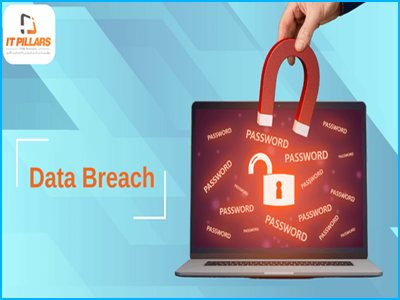How Businesses in India Can Protect Themselves from Data Breaches

Businesses in India must prioritize data security to prevent costly breaches. Ensuring PCI DSS compliance is crucial to avoid fines, reputation damage, and legal liabilities. Regular security updates, audits, and expert guidance can protect your business from breaches and hidden fees, ensuring compliance and safeguarding customer data.
Is it true that data breaches are increasing?
Yes, the cost of data breaches has risen dramatically, with breach costs increasing by 10% from 2023 to 2024—marking the largest yearly jump since the pandemic. Additionally, 70% of organizations that experienced a data breach reported significant disruption to their operations (IBM). It’s crucial to take every possible step to protect your business. In India, if your business accepts credit card payments, you are responsible for safeguarding cardholder data. Ensuring your business is compliant with the Payment Card Industry Data Security Standard (PCI DSS) is critical—not only to reduce the chances of a breach but also to minimize liability should a breach occur.
What happens if my business is non-compliant, and a data breach occurs?
While PCI compliance is not mandated by Indian law, failing to adhere to PCI DSS can lead to serious consequences. Non-compliance can result in investigations, fines, and penalties. If your business is non-compliant and suffers a breach, card issuers may hold you accountable for the costs of reissuing credit cards, including fraudulent charges, which can also involve up to 12 months of credit card monitoring for affected customers. You may also be required to hire a PCI Forensic Investigator. Additionally, fines for non-compliance can range from ₹1,500 to 3,75,000 per month, depending on the severity of the breach. Beyond financial consequences, a breach could severely damage your business’s reputation and, in some cases, lead to bankruptcy.
How long does it generally take for a business to discover a data breach?
According to IBM, organizations take an average of 204 days to detect a cyber breach, followed by an additional 73 days to contain it. During this time, affected businesses may continue processing payments, increasing the scope of the breach.
How do I become PCI compliant?
Becoming PCI compliant is not a one-time task but an ongoing process. It involves meeting 12 security requirements that help protect consumer data. This requires implementing proper security policies, procedures, and employee training in line with PCI DSS guidelines.
If you're unsure whether your business is PCI compliant, you can audit your merchant statements, which will show if you’ve been penalized for non-compliance. Some processors charge quarterly fines for non-compliance, so check at least the past three consecutive statements. If you find a non-compliance fee, contact your payment processor (keep your merchant ID handy) and initiate the compliance process.
Basic steps for PCI compliance include changing passwords regularly, using third-party services to monitor network security, and reviewing physical security measures like employee training and IT infrastructure. Familiarize yourself with the PCI DSS 12-step checklist, which includes firewalls, encrypting cardholder data, and monitoring network access. Regular vulnerability checks help keep your customer data secure and can save you money in the long run.
I have an integrated system, what should I be doing to ensure it is secure?
Regular updates to any integrated software systems are essential to maintain security. These updates often contain crucial patches for vulnerabilities, and delaying them can have serious consequences, including violations of compliance standards such as PCI DSS. This could result in fines and damage to your reputation. By keeping your systems current, you can avoid costly penalties and ensure your business remains compliant.
Is there a third-party expert that can help me with this process?
If you're concerned about managing the complexities of PCI compliance on your own, consider engaging a third-party expert. An independent auditor, like Merchant Advocate, can guide you through the compliance process and help reduce non-compliance fees and other hidden costs. In India, many businesses lose up to 5% of their net revenue to these fees, which can be avoided with the help of an expert. An auditor can also evaluate your merchant account and help you negotiate better processing fees.
In 2023, Indian merchants paid more than 12,000 crore in processing fees, a 7.5% increase over the previous year. While some fees are unavoidable, many can be reduced or eliminated with proper negotiations.
The constantly evolving landscape of credit card security and compliance highlights the importance of staying vigilant. By increasing awareness through education or professional assistance, businesses can protect their financial interests and customer data, empowering them to navigate the payment ecosystem with greater confidence.
(This "Security Blogs" Published in January 2025 Edition)




.png)







